Utopia
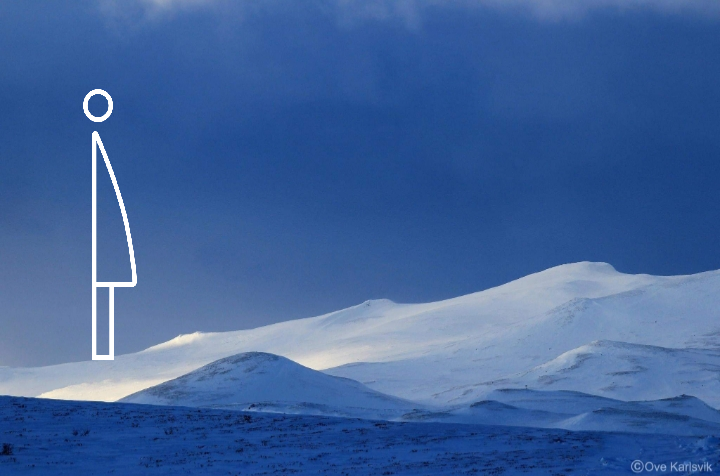
At HOWHY, we have chosen to be deliberately utopian, yet without naivety or compromise. At first glance, HOWHY's knives are high quality, made in France and 50% of the profits are donated. But our utopia goes even further.
We want to :
But that's going to be a lot to read! Bad luck for you :)!
Just imagine how long it's going to take us to put all this together...
For your trouble, we'll buy you a coffee!
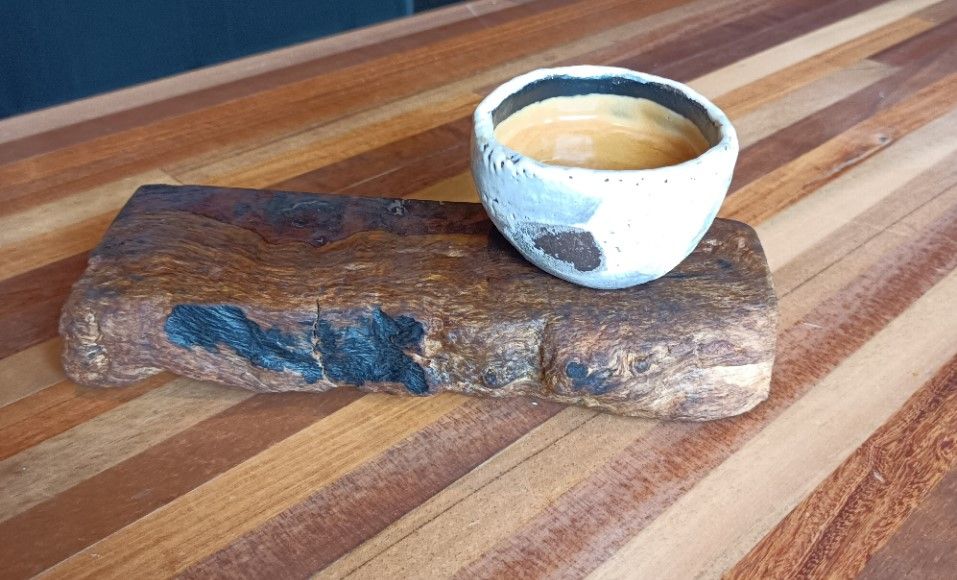
H U M A N I S T K N I V E S
Because of its potentially dangerous nature, the fact that it was created from fire by processes that were long mysterious, the fact that it has long symbolised power or the passage to adulthood, etc., the knife has never really been considered as a simple object. It continues to be surrounded by a special aura. It is passed on, given as a gift, forbidden, and so on. If the knife is more than an object, then it should never be reduced to being just a ‘product’ or a ‘commodity’.
At HOWHY we want to make more than objects, more than products, and in a sense, more than knives. We want to make knives that embody humanist values, knives that are ‘attentive’ to all Others (human and non-human). Sounds a bit silly when you put it like that, doesn't it? In fact, we don't think it is :).

We even think of our knives as our footprints. Not just our ‘carbon’ footprints, but truly the traces we leave behind. They embody how we want to be involved in this world and who we want to be. Our knives say a lot about the human beings we want to be... They are also the guarantors of our own utopias.
To make sure we never forget that we put who we are in our knives and that our knives are only tools that should always be used to serve living beings, we have created a symbol that is half-human, half-knife. We've even given a name to what is our totem and our visual identity: ‘Howhy’.
A N E M B O D I E D U T O P I A
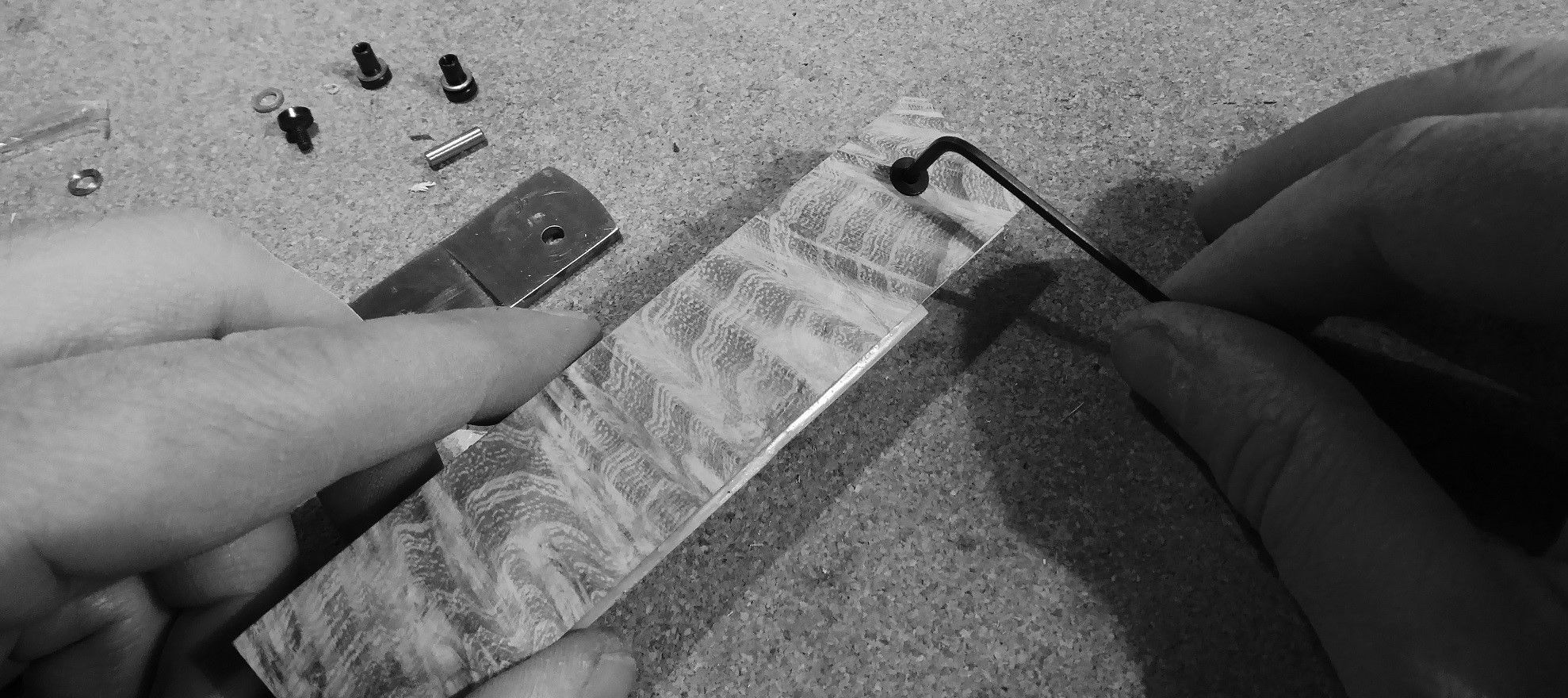
To be truly inspiring, a utopia must always have at least one concrete aspect. For us, it's simple: utopia will take the form of an object. And that's perfectly normal, given our conviction that the objects that populate our lives can transform us, educate us and make us think. We greatly underestimate the philosophical and utopian power of the objects that surround us. This suits us fine. We can happily continue to buy them. All we have to do is close our eyes tightly...
Howhy's first utopia, which is in no way naïve, could be described as follows: we want to believe, and make people believe once again, in the power of things. Things have the power to transform individuals. They always have, and the knife is perhaps the number one object in the history of our relationship with things.
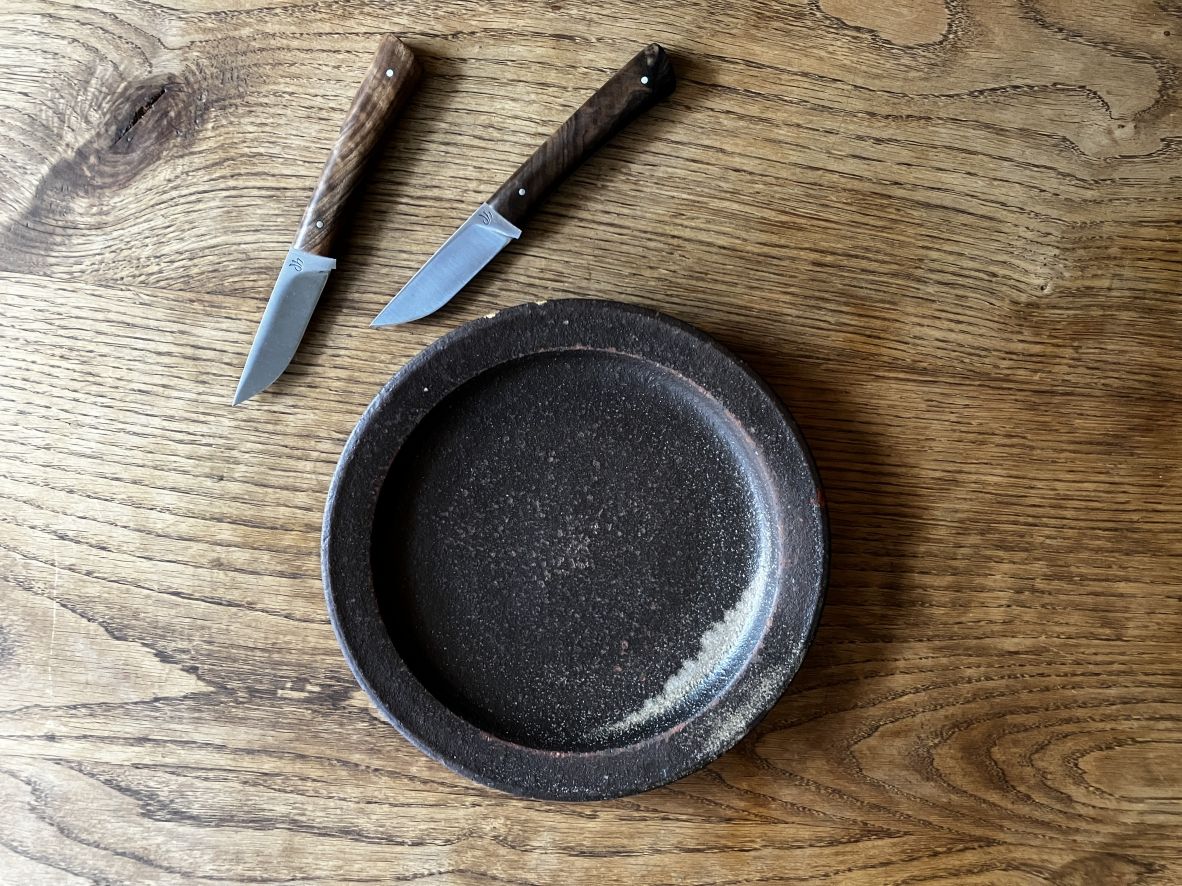
Utopia is something that requires seriousness and demands drastic specifications.
In order to qualify as ‘utopian’, each H O W H Y knife must be :
- Beautiful: we believe in the defence of true craftsmanship and the elegance of pure design. The quality of gestures and the beauty of lines soothe the spirit.
- Useful: a knife must first and foremost be an efficient tool. It must be easy to handle, sharp and easy to maintain.
- Respectful: of the planet, of materials, of users, of the people who make it, of everything and everyone.
- Meaningful: we want to make ‘deep’ knives that raise important questions. We want hands and brains to always work together.
- User-friendly: among HOWHY knives, you won't find any tactical or military knives. We want to combat the potential dark side of every blade. Our cutting edges want to bring people together rather than separate them.
- Helpful: If HOWHY knives were weapons, we would want them to be weapons for doing good. Through our policy of redistributing profits and our choice of educational design, we want, in our small way, to try to help people who help.
W E P R E F E R N O T T O or
D I F F E R E N T L Y
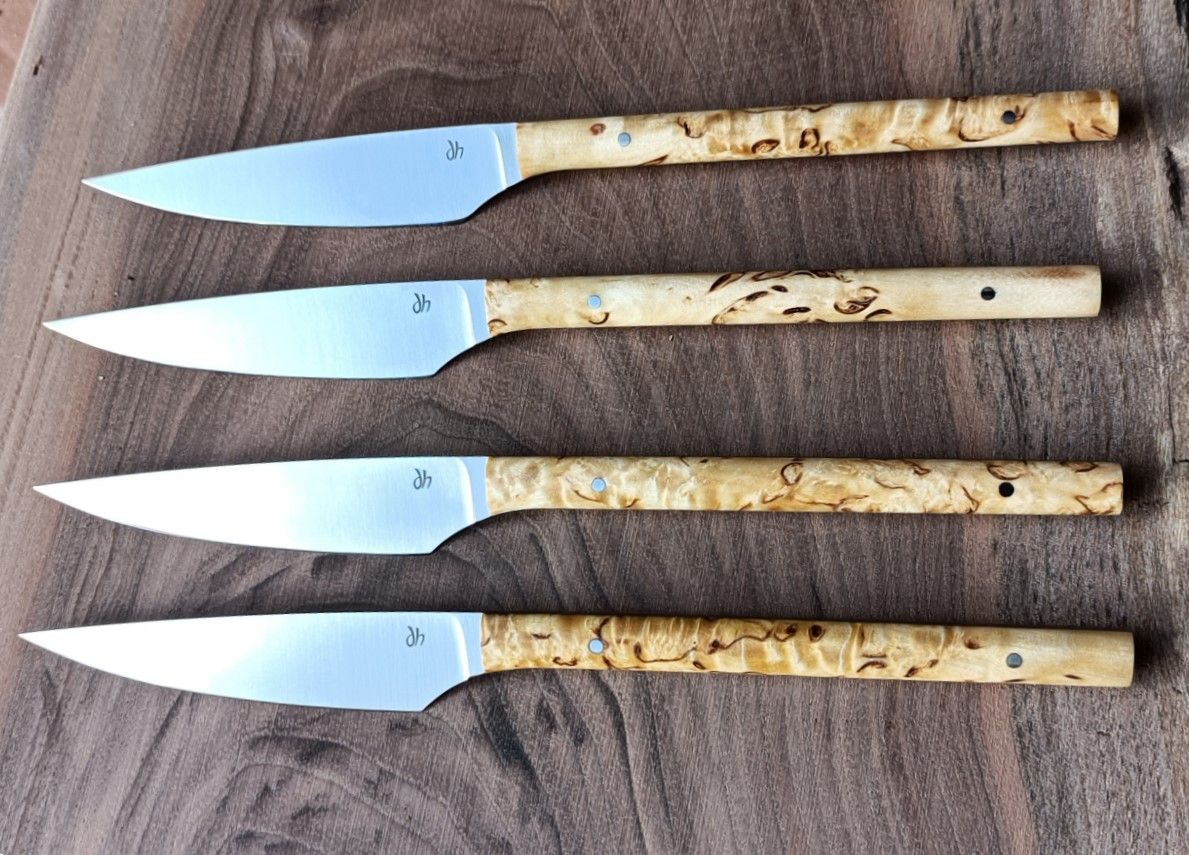
1 . Sell differently and redistribute 50%.
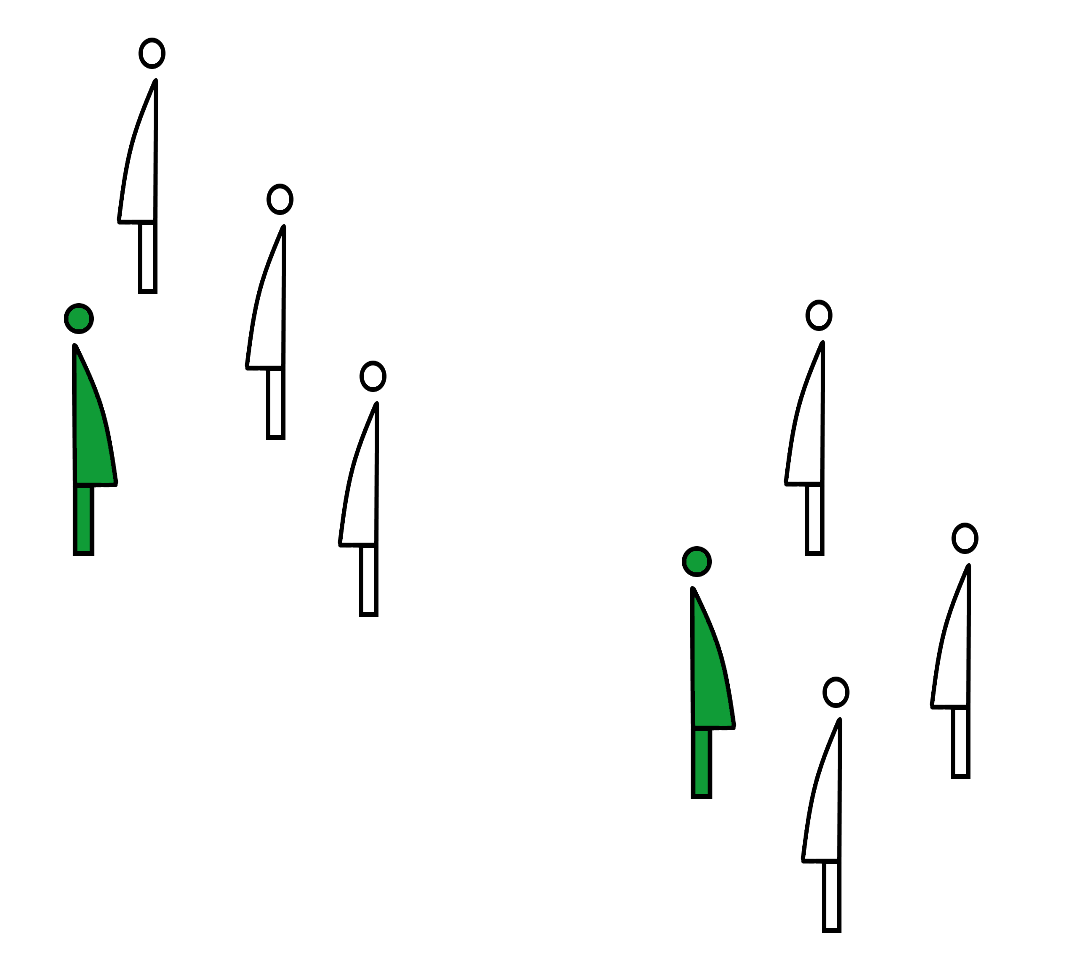
How can we sell in a way that is most in tune with all our questions (HOW + WHY) and most ‘relevant’ socially, ecologically and humanely?
We could bet on quantity: selling everywhere and a lot to generate as much redistribution as possible and maximise our impact.
But we're not going to try to ‘maximise’, but rather to be ‘fair’ from the outset. That's why we're only going to sell through our website and via a network of distributors who are not just resellers but people who are doing great things and who deserve to be known. In this way, we hope to kill two birds with one stone: raise awareness of what they're doing + enable them to recoup from the sale of the knives the part that traditionally goes to distributors.
2 . Communicate differently
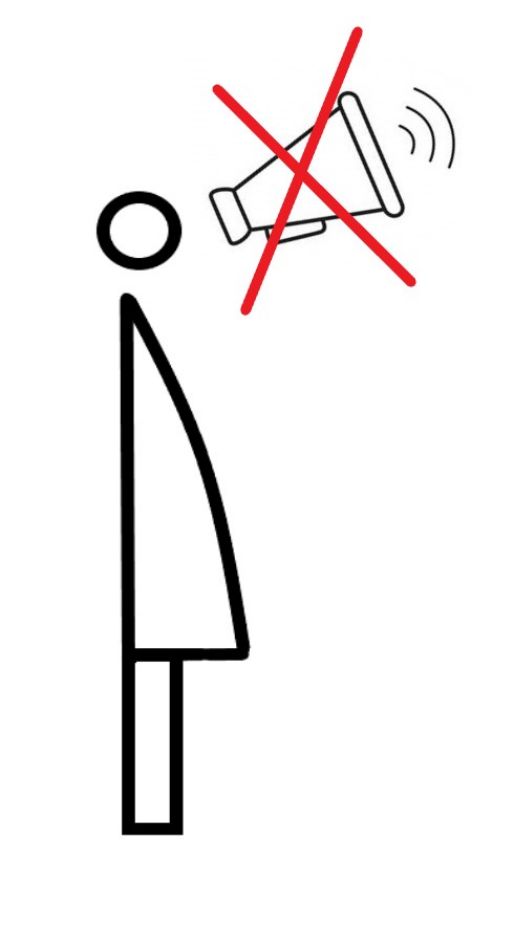
HOWHY is a highly ambitious initiative that will only be possible in the long term on one condition: to sell knives. And to sell knives, you need to make yourself known. So the temptation would be great to advertise, to have a real media strategy to increase our digital presence via influencers and social networks, for example. But we won't do that... and we will have very little presence in the media, with the exception of certain media that give ideas and people time. We will shun all media that are merely disguised shop windows.
We're making a bet: if we do things right, if we pay the utmost attention to everything and everyone around us, then people will love our knives because they'll understand everything they represent, the heart (and brain) we put into them. They'll feel that the beautiful object they hold in their hand is much more than just a beautiful object.
3 . Work differently
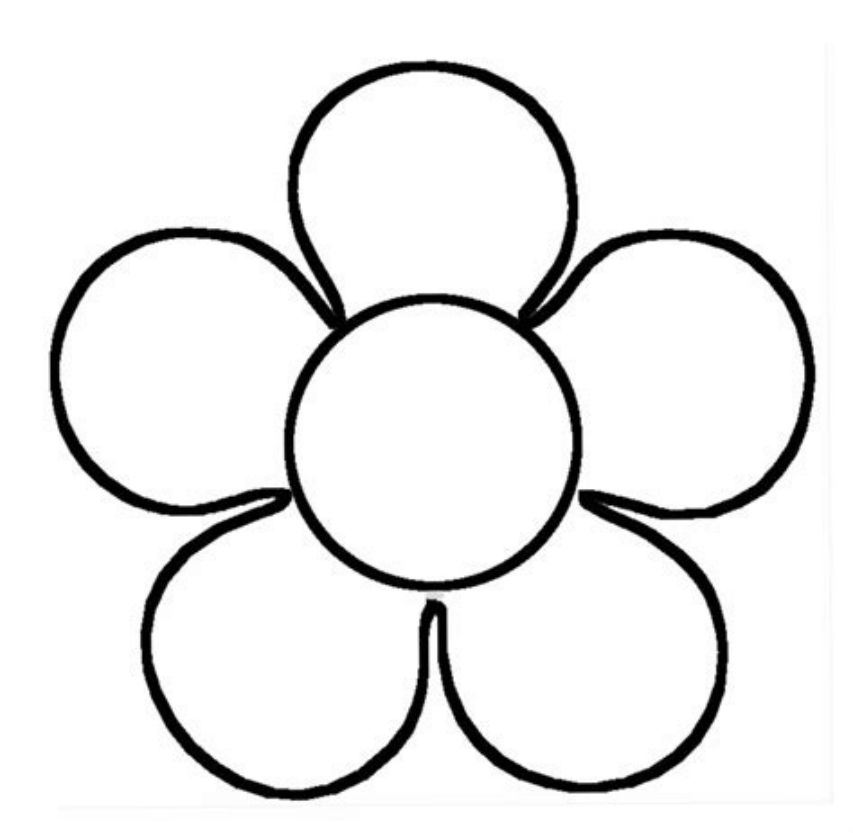
More often than not, companies like ours emphasise the fact that everything is done in their workshops by just a few people. Sometimes this is a bit of a cop-out, but most of the time it's true and the work is of the highest quality. We sincerely admire these companies. But at HOWHY we want to try something different.
And for several reasons:
- Some people at HOWHY have worked 8 hours a day for years, making hundreds of knives. While this has been extremely formative, the bodies have suffered and we don't think that what wasn't good for us can be good for others.
- We believe that work should be an opportunity to develop curiosity, creativity and joy. It should be a means of emancipation and sharing, even outside the circle of our few ‘colleagues’. We believe that you have to pay the utmost attention to what you do, and that if you want to make magnificent objects and be proud of your work (which is fundamental), you have to do it consciously and without ever being blasé. And to do that, it's probably no longer possible to do it 8 hours a day, every day for 40 years. At HOWHY we try to ensure that work adapts to the individual and not the other way round. This allows us to aim for even higher standards in our work. Quite simply because people love what they do and have the time to do it well.
- We believe it is essential never to use remuneration as an adjustment variable. If a knife is only commercially viable if the people who make it are not paid what they deserve for their work, then it simply isn't viable... And we have a problem with the solution of selling knives at prices that are accessible only to people who can really afford them. The love of beautiful objects and respect for craftsmanship are not correlated with the size of a bank account. Everyone loves beautiful knives and they shouldn't be objects of distinction or social segregation. What's more, it's easy enough to buy a good conscience when you can afford 180 euro sneakers and a 300 euro windbreaker, but how effective is this model on a global scale?
- We believe that we never work as well as when we work ‘for’ others. It's true that we work to earn a living, but if we also know that the excellence of our work helps to fight, even a little, against the madness of the world, then we can really put our ‘heart into our work’.
So that these remarks don't just sound like pretty managerial storytelling, they must condition the entire organisation of work at HOWHY.
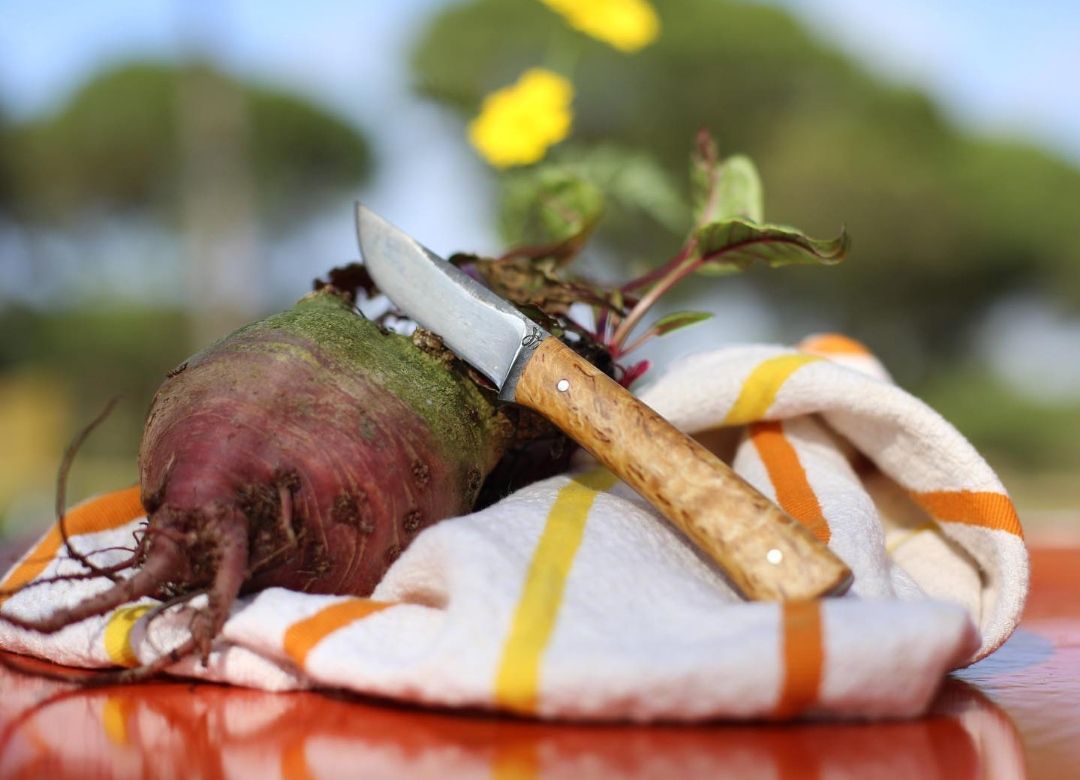
Work organisation
- At HOWHY, people don't work full-time if they don't want to, and multiple jobs are seen as an opportunity. Ideas, points of view, passions and know-how circulate all the more and we all come together around the excellence of a common goal: to make the most beautiful and ‘right’ knives possible! We're more like a group of jazz musicians than a classical orchestra.
- Respect for time. It's worth pointing out the obvious: we're not heart surgeons and we don't save lives. So using urgency as a pretext to put pressure on everyone else is just a means of asserting power without interest. Things that are well done take time, and people who are in their right minds know what they owe to a proper relationship with time. At HOWHY we take and give the time you need. No more, no less.
- There are no barriers to entry to work at HOWHY other than a willingness to always improve and take responsibility for our mistakes. If we can provide work, even for the time it takes to assemble a single model from our range, or even just for a single stage in its manufacture, to someone who needs it, or who just wants to do something with their hands, we'll do it. And even if that person doesn't have a knifemaking background, we'll try to get them to do what they can do, always trying to show them that they can do more than they thought they could.
Our knives are not only intended for their future owners, but they must empower and delight those who make them.
In any case, all HOWHY knives must be perfect in every respect. We are flexible on everything else...
4 . Collaborate differently
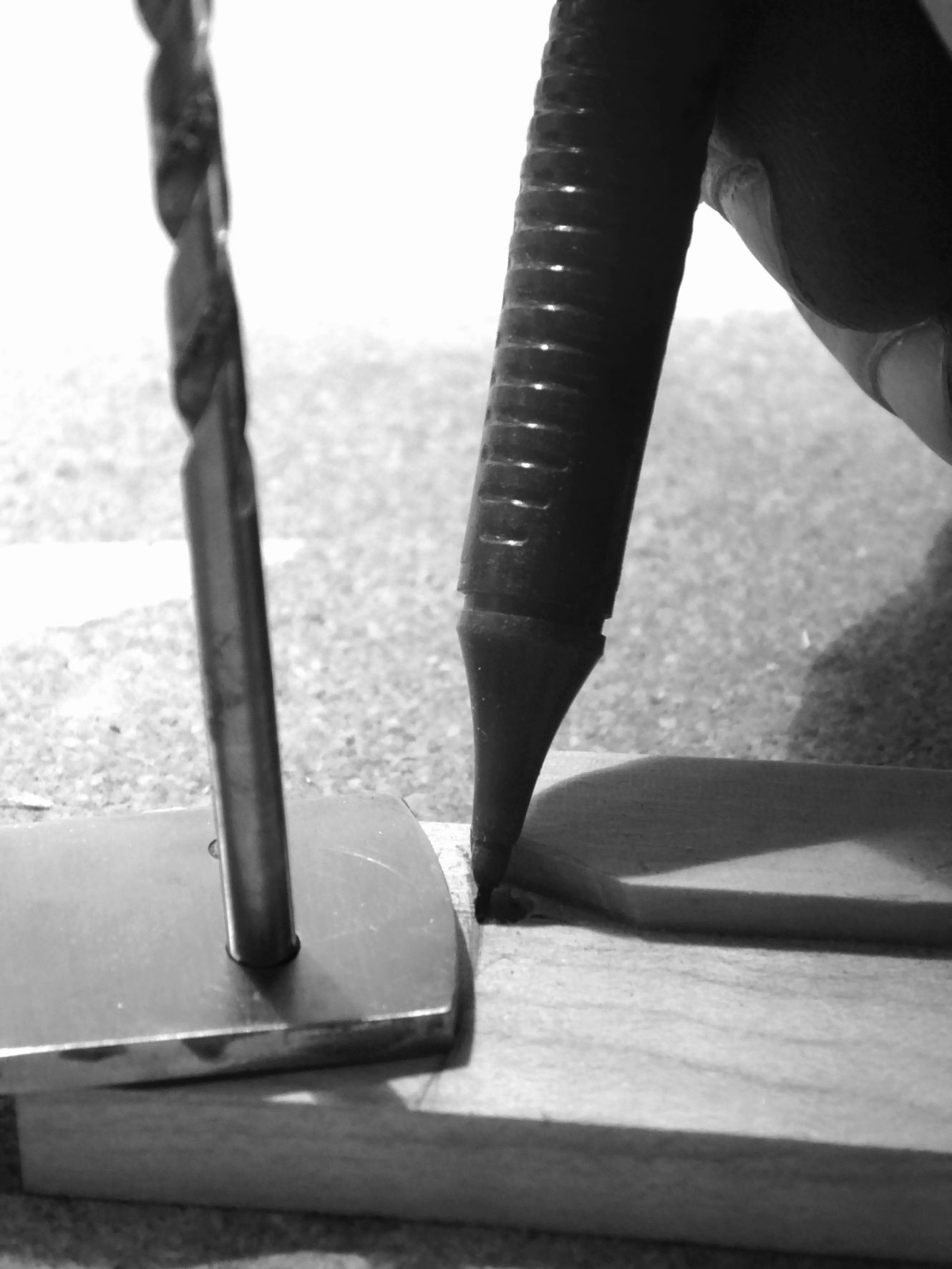
Each HOWHY knife is a traveller who has been to many lands and crossed paths with many people. Understanding the carbon footprint of an object also means understanding all the people who have put their lives into it.
Who cast the steel for this blade? Who cut the wood for the handle? Who made the rivets? Who boiled the linseed oil used to impregnate the handle? It is wrong to imagine that the raw materials that make up a knife bear no trace of human labour. A tree trunk is not a handle. Iron ore is not a steel bar. There are dozens and dozens of people involved in a HOWHY knife, and we'll never be able to name them all.
Rather than wrongly reducing the identity of our knives to our close-knit team, we want to do the opposite: ensure that our knives come into contact with as many people as possible. HOWHY knives are knives of encounters: the result of encounters, made from encounters, the promoters of encounters. A knife whose wood has been salvaged from an antique dealer, cut up in a workshop for people who need to get back to work, shaped in our workshop, screwed together by a private individual who doesn't do this for a living but who temporarily needed this extra income to get through a difficult period, engraved in our workshop, etc. - that's a knife whose totem pole could be our Totem. That's a knife our Totem could be proud of. It's up to us to guarantee the quality of the work and the attention paid to each of these encounters.
We will try to accompany each knife with a map of the ‘human’ journey it has made.